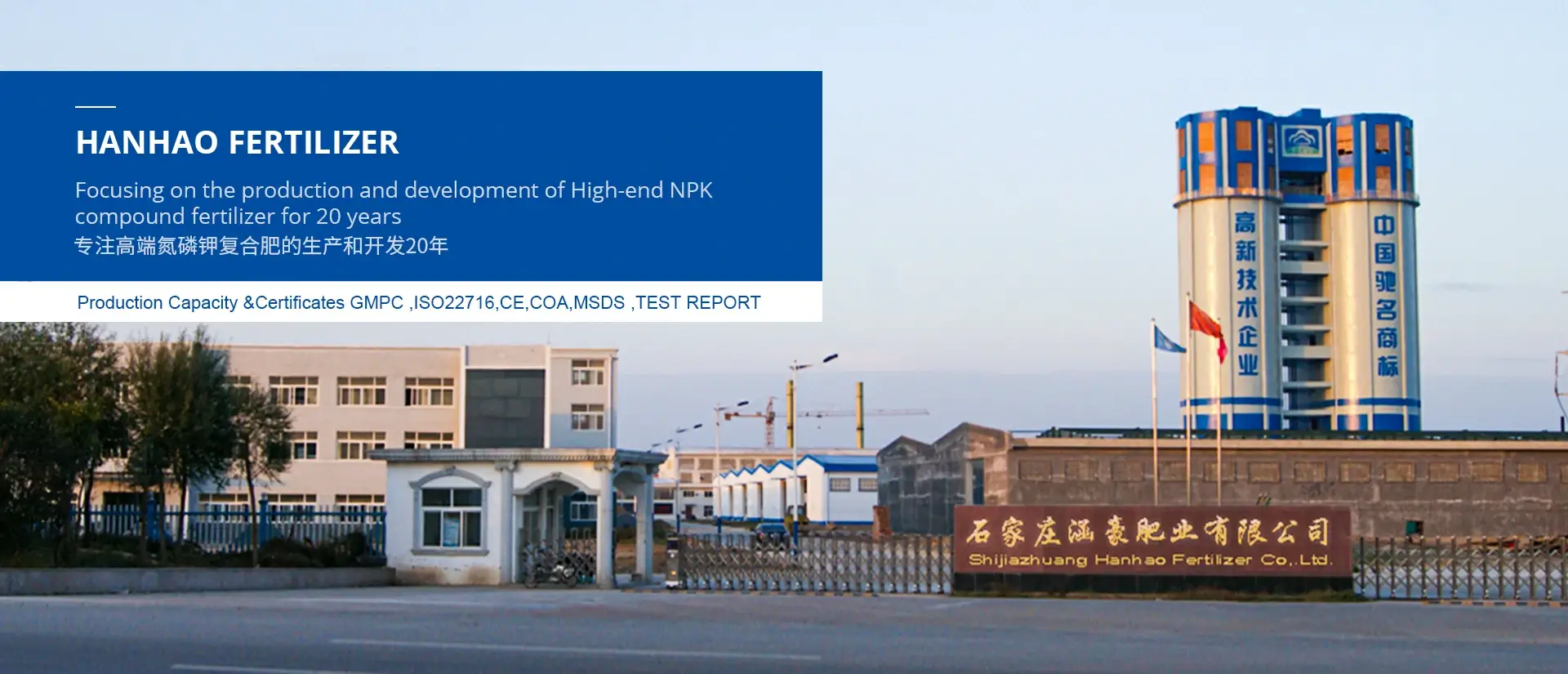
Oct . 20, 2024 03:02 Back to list
fertilizer
The Importance of Fertilizers in Modern Agriculture
Fertilizers play a crucial role in modern agriculture, serving as essential tools to enhance soil fertility and boost crop production. As the global population continues to grow, the demand for food increases correspondingly. To meet this demand, farmers worldwide have turned to fertilizers to maximize their yields. However, the use of fertilizers also brings with it a range of ecological considerations and challenges that both farmers and consumers must understand.
Fertilizers can be broadly categorized into two types organic and inorganic (or synthetic) fertilizers. Organic fertilizers are derived from natural sources, such as compost, manure, and other organic matter. They improve soil structure, increase biodiversity, and enhance the water-holding capacity of soil, promoting long-term sustainability. In contrast, inorganic fertilizers, which are manufactured through chemical processes, provide targeted nutrients like nitrogen, phosphorus, and potassium in concentrated forms. These nutrients are essential for plant growth and can lead to remarkable increases in productivity when used wisely.
Nitrogen, one of the most significant components of fertilizers, is vital for plant growth as it is a key element in chlorophyll, the compound that plants use in photosynthesis. Phosphorus, another essential nutrient, plays a crucial role in energy transfer and photosynthesis, while potassium aids in overall plant function, influencing water regulation and disease resistance. The balanced application of these nutrients helps farmers optimize crop yields and improve the quality of their produce.
However, the excessive use of fertilizers poses various environmental risks. Over-fertilization can lead to nutrient runoff into nearby water bodies, causing a phenomenon known as eutrophication. This process results in the excessive growth of algae, which depletes oxygen in water and leads to dead zones where aquatic life cannot thrive. Additionally, the production and transportation of synthetic fertilizers contribute to greenhouse gas emissions, impacting climate change. Therefore, it is essential to balance fertilizer application with environmental stewardship.
fertilizer

To mitigate the negative effects associated with fertilizer use, several strategies can be employed. Integrated nutrient management (INM) is one approach that combines organic and inorganic fertilizers to optimize nutrient availability while minimizing environmental impact. This system encourages the use of organic amendments to improve soil health, while synthetic fertilizers can be added as needed to meet crop demands. Crop rotation and cover cropping are also effective practices that enhance soil fertility without relying solely on chemical inputs.
Moreover, precision agriculture technologies have emerged as potential solutions to optimize fertilizer use. By utilizing tools such as soil sensors, GPS-guided equipment, and data analytics, farmers can apply fertilizers precisely where and when they are needed. This targeted approach not only minimizes waste and reduces costs, but also lessens the environmental impact of agricultural practices.
Consumer awareness and demand for sustainable farming practices are also shaping the future of fertilizer use in agriculture. There is a growing trend towards organic farming and the use of bio-fertilizers, which are made from natural organisms and have been shown to provide substantial benefits to soil and crops. As consumers increasingly prioritize sustainability, farmers may be compelled to adapt their practices, shifting towards more environmentally friendly options.
In conclusion, fertilizers are indispensable to modern agriculture and play a pivotal role in meeting the food security challenges of the 21st century. However, their use must be approached with caution to minimize potential environmental impacts. By adopting sustainable practices such as integrated nutrient management, precision agriculture, and increased reliance on organic fertilizers, we can foster a healthier relationship between agriculture and the environment. Ultimately, the goal should be to enhance food production while safeguarding our planet for future generations, ensuring that both people and nature can thrive in harmony.
-
Premium 10 10 10 Fertilizer Organic for Balanced Plant Growth
NewsJul.29,2025
-
Premium 10 10 10 Fertilizer Organic for Balanced Plant Growth
NewsJul.29,2025
-
50 Pound Bags of 13-13-13 Fertilizer for All Plants – Bulk & Organic Options
NewsJul.28,2025
-
High-Efficiency 15-30-15 Granular Fertilizer for Healthy Crops
NewsJul.28,2025
-
15-30-15 Granular Fertilizer for Optimal Crop & Lawn Growth
NewsJul.27,2025
-
Premium 10 10 10 Water Soluble Fertilizer for Fast Plant Growth
NewsJul.26,2025
